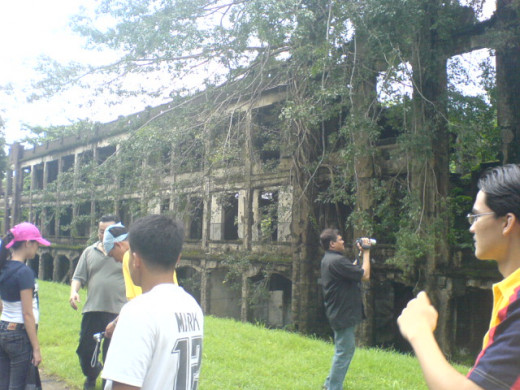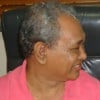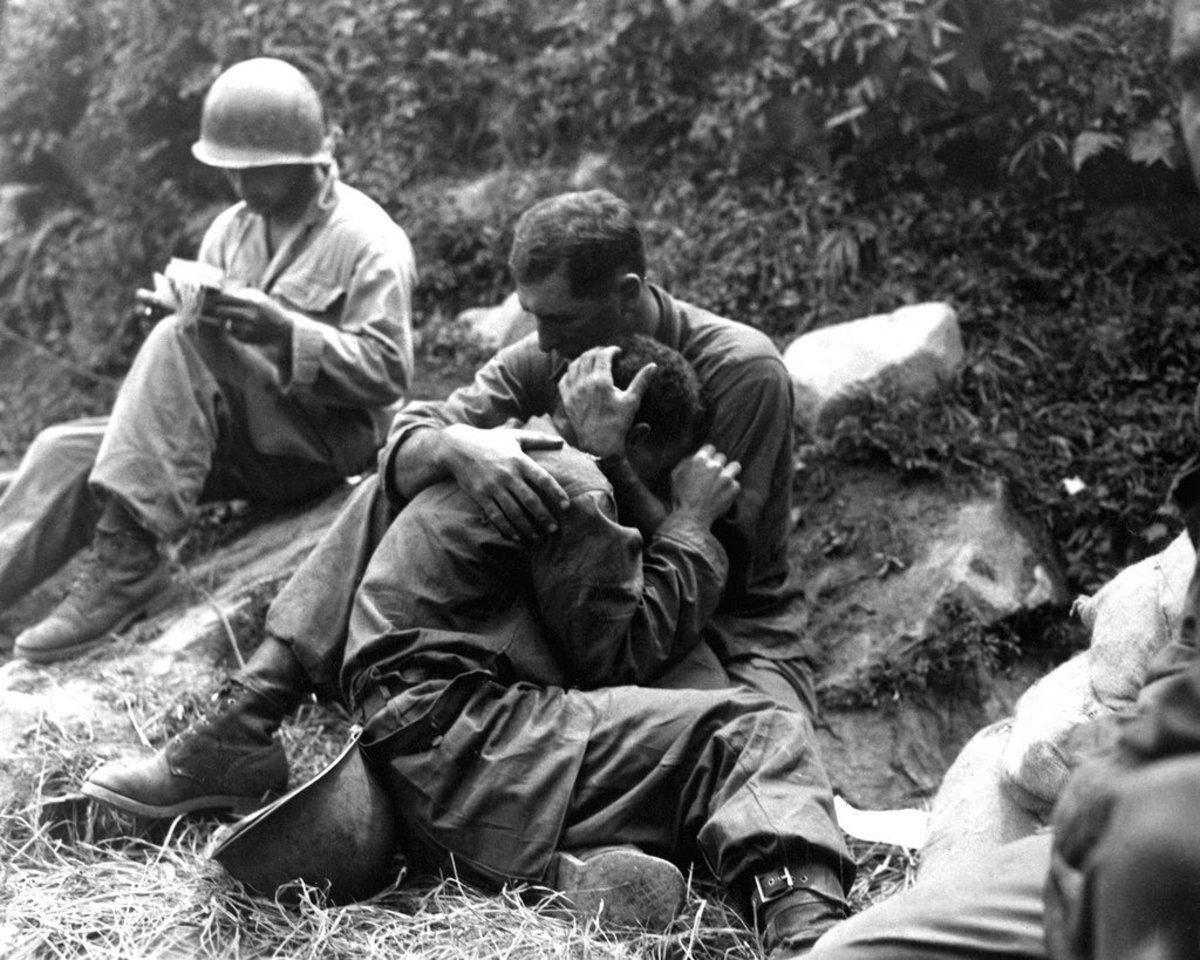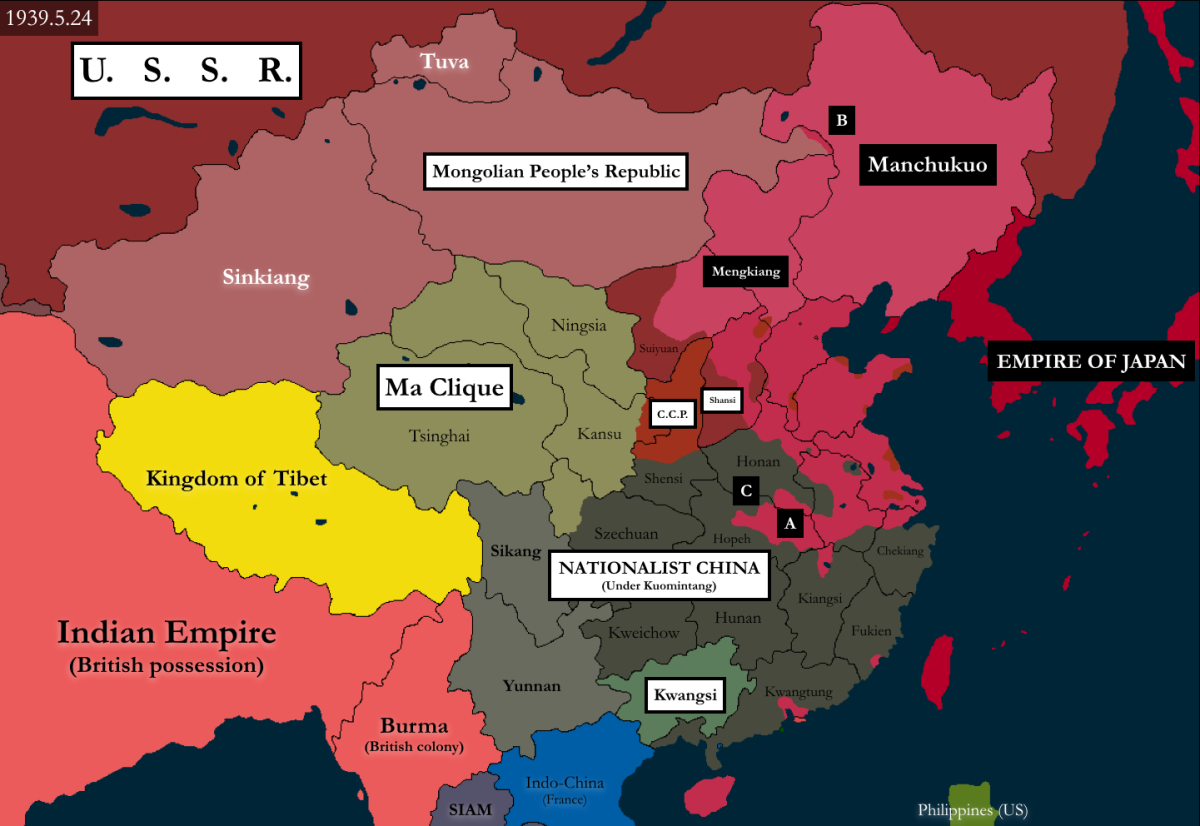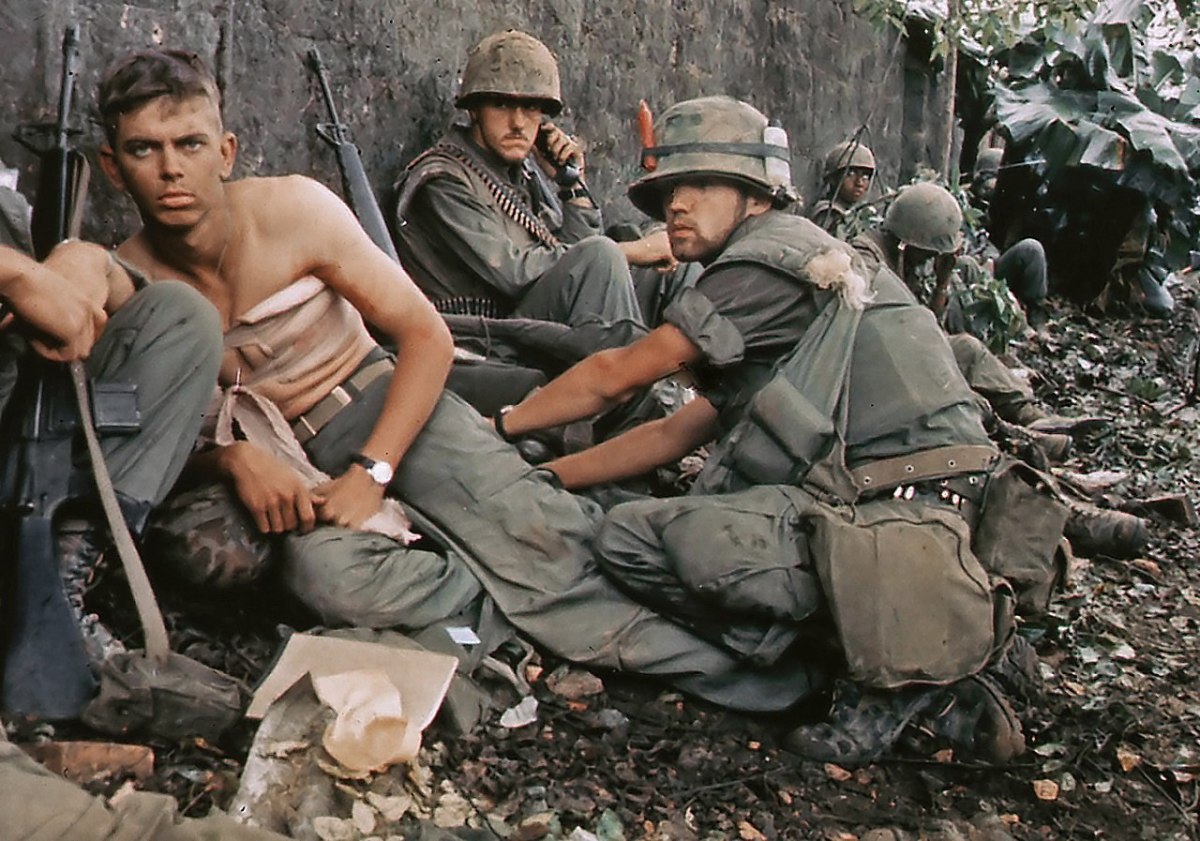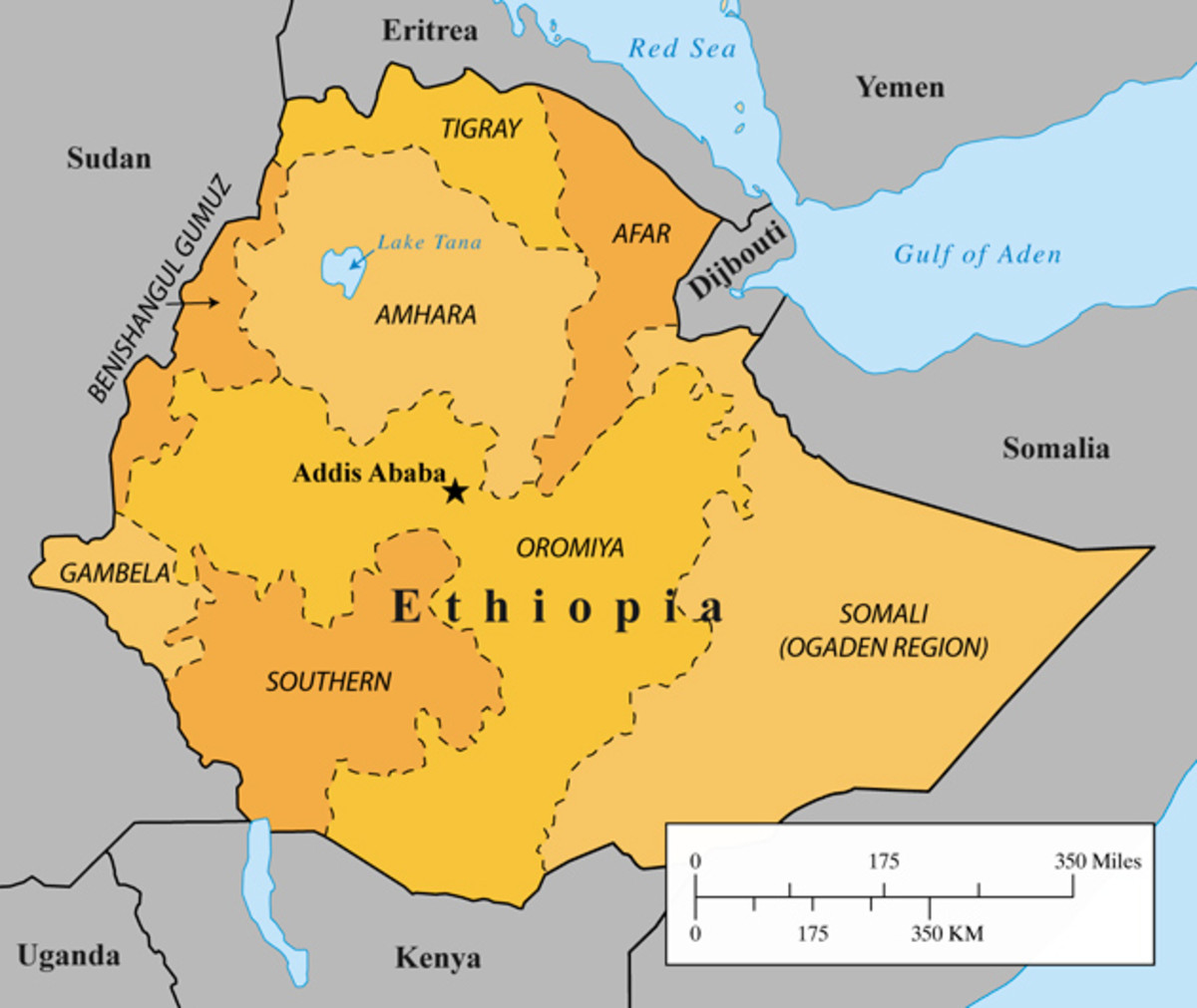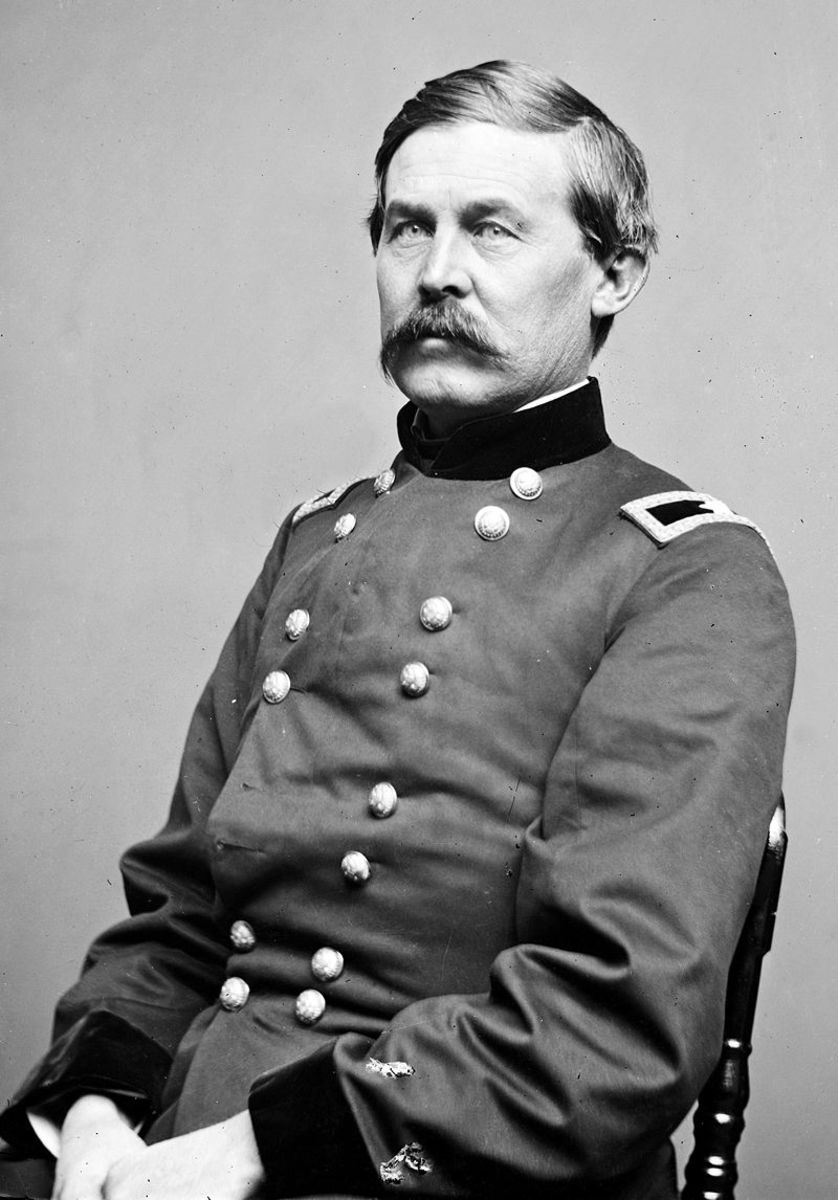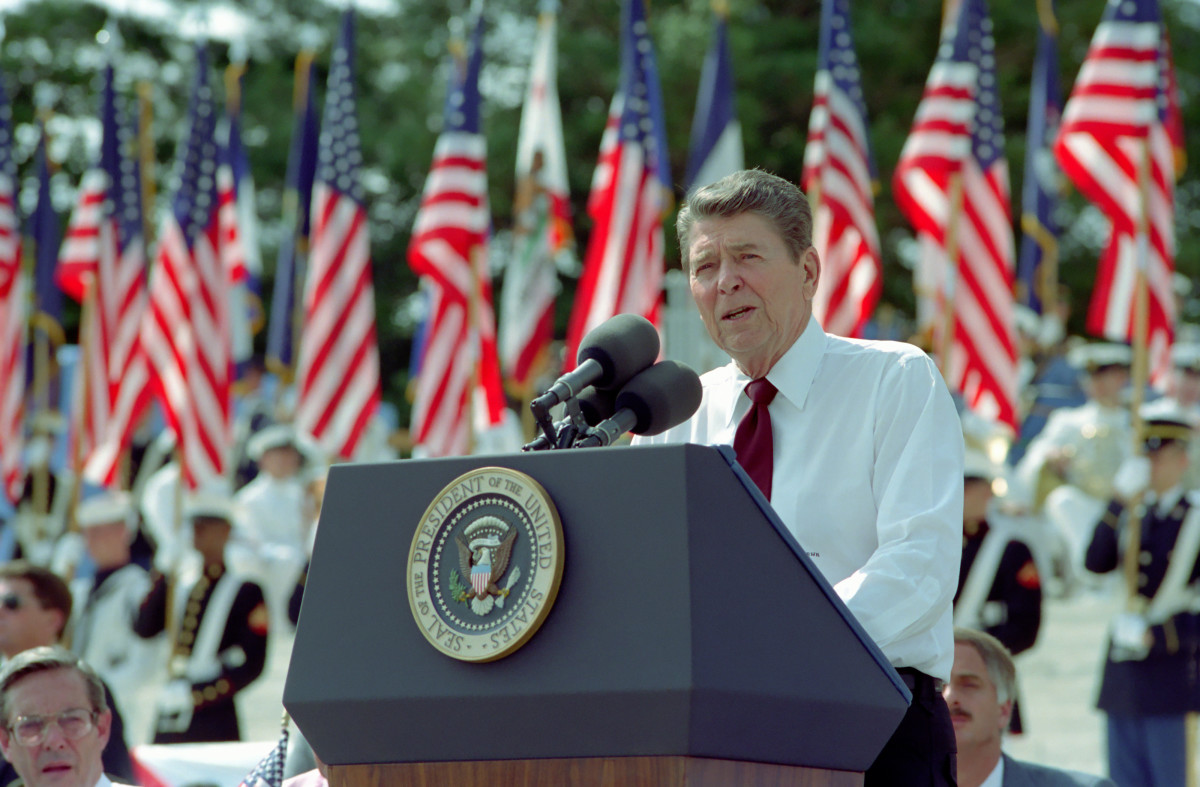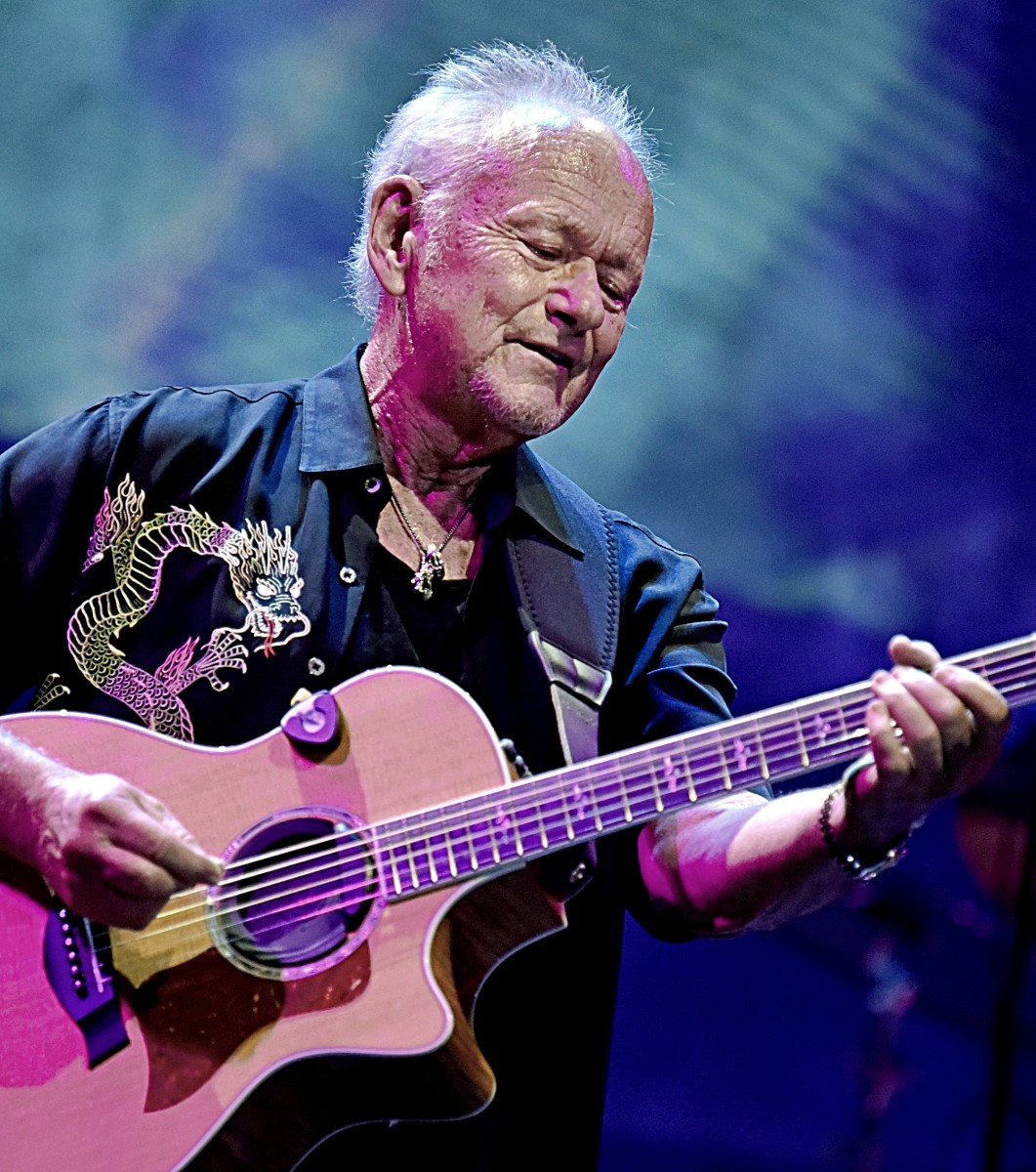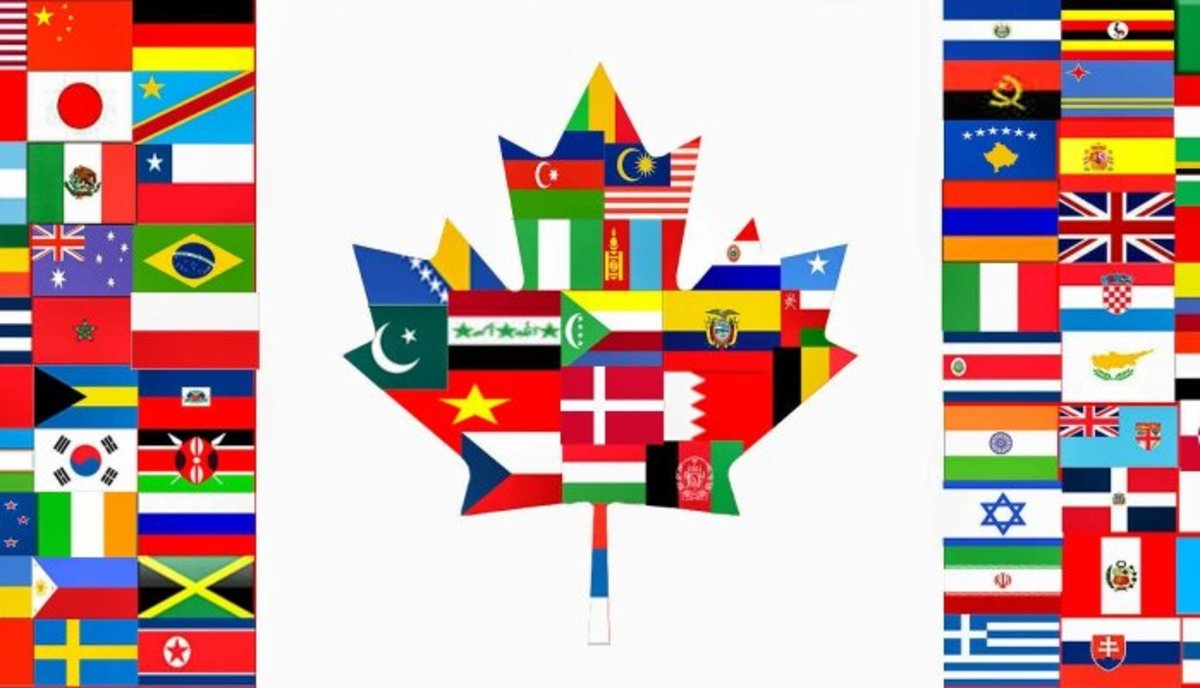Gen. Douglas MacArthur: His Pursuance of Winning the Korean War Terminated His Military Career
Gen. Douglas MacArthur
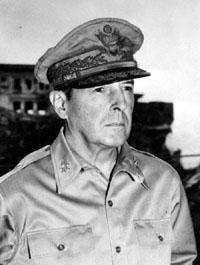
Big guns in Corregidor visited by students on study tour in 2006
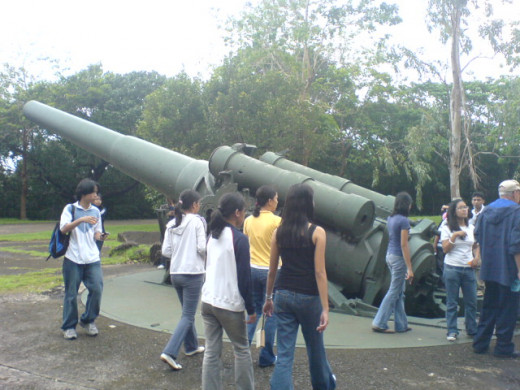
Fleet Admiral Chester William Nimitz
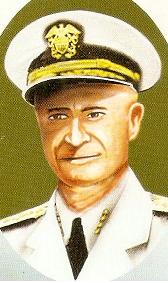
As first commander of the United Nations army in Korean war he wanted to win
Who was Douglas MacArthur? His insistence to bomb north of Yalu river during the Korean war (1950-53) ended his military career. That part is Manchuria, already a part of China, that was used as a "privileged sanctuary" by the North Korean and Chinese forces.
Posted picture.
The picture posted by PhoenixV was Douglas MacArthur, General of the Army, in the forefront when he and his forces landed in Leyte, Philippines on October 20,1945. The small man behind him was Gen. Carlos P. Romulo, a Pulitzer Prize winner for chronicling his experiences and exploits with MacArthur during World War II. Romulo was the first American-Filipino to have a doctoral dissertation on American literature.
Romulo was not schooled in a military academy like the West Point. During WWII he had a radio program calling for support of the efforts in the war, building up morale of the military and support from the civilian population. Whereupon, he was conferred the rank of general. He went on to become president of the General Assembly of the United Nations.
From 1900 when the United States annexed the Philippines as its first country in its empire up until July 4,1946, the Philippines was a colony of the US. So during that time, Romulo was considered an American. When the Philippines gained independence, he chose to be a Filipino.
MacArthur together with his high staff waded to the shore of Leyte. From there MacArthur's army and Admiral Chester Nimitz's navy proceeded to rid the Philippines of Japanese forces. The first plan was to land in Mindanaw.
Commander of Southwest Pacific theatre
At that time, MacArthur was the commander of the Southwest Pacific theatre of the war. The Pacific command was split between Nimitz and MacArthur to give way for the navy to redeem itself having been the victim of an undeclared and sneak attack by the Japanese at Pearl Harbor on December 7,1941. In the European theater, Gen. Dwight Eisenhower was the sole commander as Supreme Commander.
Douglas was the son of then Col. Arthur MacArthur and Mary Pinkney Hardy. For his entrance examination at West Point, Douglas garnered 97.3%; the competitor next to him got 77.9 %. Arthur eventually became a general who led the conquest of the Philippines, to make it the first piece of US empire in the far east. Gen. Arthur MacArthur was the first military governor of the Philippines (Hunt, F. The Untold Story of Douglas MacArthur. 1954).
Douglas's military career was meteoric that he reached the pinnacle as chief of staff of the United States army. Then at the age of 55 he opted to retire. He went to the Philippines to spend his retirement years. He was commissioned by President Manuel L. Quezon, of the Commonwealth of the Philippines, to organize an army in the Philippines called United States Armed Forces in the Far East (USAFFE).
Douglas was in command of this army when the Japanese imperial forces invaded the Philippines in 1941. In anticipation of the expansionist tendency of Japan to establish an Asian co-prosperity sphere, the Corregidor island was fortified with a military shelter and big guns. Corregidor is a natural guard post at the mouth of Manila bay. Manila is the capital of the Philippines, the primary target of the Japanese.
Corregidor being impregnable, the Japanese landed up north at Lingayen gulf of Pangasinan province and proceeded to take a route of several kilometers to Manila. Along the way, at Bataan, the USAFFE intercepted the Japanese army and engaged them in fierce battles. This ended in defeat of USAFFE as it did not have enough arms and ammunition besides being outnumbered by the invaders. The defeated American and Filipino soldiers were forced to march from Bataan to Capas, Tarlac in what is now called the infamous Death March.
Battles in Bataan delayed the Japanese schedule in the Pacific by two months, otherwise the Japanese could have occupied Australia and deprived MacArthur a base for invading Japan.
MacArthur was called by the USA to Australia and recalled to active duty in the military. From the Corregidor island he escaped from the Japanese gauntlet together with Pres. Luis Quezon, Vice Pres. Sergio Osmeña and Carlos P. Romulo. MacArthur was appointed commander of the Southwest Pacific theater. He assembled in Australia the forces that would defeat Japan.
Before leaving the Philippines, MacArthur turned over the command of the USAFFE to Gen. Jonathan Wainwright. He promised, "I shall return."
The overall strategy of the Allies in WWII was Europe first, the Pacific next. The invasion of Sicily against Italy, and of Germany commenced ahead of the invasion of Japan.
By means of island hoping, MacArthur's army and Nimitz's navy were able to cut down the Japanese defenders. A lot of Japanese standing guard on an island, for example, were bypassed, left behind, their supplies and ammunition lines cut off
On August 1945 Nimitz had already secured Okinawa island of Japan as a base to attack. MacArthur had already secured the Philippines, and Luzon, the northernmost part, could be used as a jumping board for an invading army to take Japan.
Without the knowledge of MacArthur the two atomic bombs were dropped over Japan in the middle of August 1945, one over Nagasaki, another over Hiroshima. Each bomb killed at least 60,000 civilians and soldiers. These bombs forced Japan to surrender, with the provision that the Emperor of Japan be retained. To this, MacArthur consented because the Japanese emperor was worth 125,000 American soldiers.
MacArthur was the commander of the American forces that occupied Japan. He was virtual emperor of Japan because the spiritual emperor of Japan was under his command as commander of the Southwest Pacific theater.
MacArthur oversaw the dismantling of the Japanese war machine, the war freak feudal warlords and the imposition of a constitution of Japan. In one week MacArthur supplied the draft of the constitution that the US congress approved as constitution of defeated Japan.
When the Korean war broke out in June 1950, MacArthur was appointed as commander of the United Nations army that subsumed the US army that subsumed the South Korean army.
North Korean forces were able to push past Seoul. MacArthur's forces were hard pressed. He landed his forces behind enemy lines, in Inchon Bay that inundates about 29 feet during high tide. The North Koreans never thought MacArthur would make it his landing site. So MacArthur was able to cut the supply lines of the Korean invaders who were forced to retreat.
UN forces were able to drive the North Korean forces up to the Yalu river, near the border of Manchuria, China. Mao Tse-tung, chairman of China came to the aid of North Korea and dispatched a Chinese contingent. Russia, an ally of China and North Korea did not contribute much in terms of ground forces.
Manchuria was used by the North Korean forces and Chinese forces as "privileged sanctuary" in the words of MacArthur. He wanted to bomb north of Yalu river along the principle of "hot pursuit." In simple terms, a policeman can apprehend a red-handed perpetrator of a misdemeanor even in the house of another person without permission from the house owner.
[This principle was largely used in the capture of Noriega, former president of Nicaragua, who was accused of dealing with drugs, brought to the USA and jailed there. The extreme case was the invasion of Iraq by a coalition led by the USA, capture of Pres. Saddam Hussein who was executed in the USA. The invasion of Iraq was not sanctioned by the United Nations. The ruse for the invasion was that Saddam had an arsenal of biological weapons with which he was threatening countries in the Middle East. It turned out that there were no such weapons.]
MacArthur was confident that bombing north of Yalu river would secure victory for the UN armed forces and for South Korea.
Pres. Harry Truman (Democrat) did not give permission to MacArthur to proceed with the bombing. For the insistence of MacArthur, Truman called for a conference with Gen. MacArthur in Wake Island in the Pacific Ocean. The point driven into MacArthur: no bombing of the sanctuary. (I have a Hub "A History of how the Korea problem developed").
The USA did not want to provoke a shooting war with Russia and China. The USA wanted to maintain the Korean war a proxy war, part of the Cold War.
It is like in a movie starring Sylvester Stallone. Rambo was sent in a mission designed such that he would not win. Rambo won anyway.
In the Korean war, MacArthur lost his fight to win with his superiors, Truman, Marshall, Acheson and joint chiefs of staff. And to the power pullers, internationalist businessmen. .
MacArthur made statements of policy in the press against the official policy of Washington and the White House. For such intransigence, MacArthur was relieved as commander of the UN forces in South Korea and as commander of the Southwest Pacific theater.
In his speech before the US congress after his dismissal by Pres. Truman, Douglas MacArthur said: "There is no substitute for victory;" and "Old soldiers never die; they just fade away" (Hunt, F. The Untold Story of Douglas MacArthur. 1954).
What was it that MacArthur did not understand that ended his military career?
China market
International businessmen coveted the Chinese market since 1900s. It is said that if the Chinese added one inch to their hemline, the US had found a market for all its cotton exports.
The USA was a late comer among imperial powers to grab a share of China. Eight western countries had gone ahead: France, Germany, Portugal, Great Britain, and Russia. These came through the construction of railroads and the Unequal Treaties. The only Asian country to partake of Chinese territory was Japan.
John Hay, former Secretary of State of USA devised the Open Door policy and got the eight countries to agree to it.
Already the Middle Kingdom that Marco Polo talked about even long before the USA could establish itself as a nation the Chinese did not like their humiliation. A fierce nationalism grew out of the May 4th movement of 1919 after World War I. China entered WWI in the hope that the Unequal Treaties would be abrogated once the allies were victorious.
The nationalist movement forked into the camp lead by Gen. Chiang Kai-shek and that of Mao Tse-tung that leaned to Marxism-Leninism. The US supported Chiang Kai-shek although posing as neutral between Mao and Chiang.
The US supported Chiang with 153,000 military personnel, including 53,000 marines, and top generals as advisers to Chiang. Pres. Truman even wanted Gen. Joseph Stilwell to command Chiang's army. Himself a general, Chiang dilly-dallied the appointment of Gen. Stilwell.
The US thought Chiang could win the civil war against Mao and anticipated they could make Chiang their dummy in the event that Chiang became president of China. Besides, the ideology of Mao was anathema to the US.
Still, USA did not declare war on Mao.
During the Korean war, the USA did not declare war on China although Mao's China contributed the largest ground forces leading to stalemate in the Korean war in 1953.
MacArthur had a hint that international businessmen were behind the strategy of no declared war with China during the Korean war. But as commander of the UN forces, where the US was its caretaker, he wanted to win. "His chief concern was victory and least possible loss of American lives" (Hunt, F. The Untold Story of Douglas MacArthur. 1954:351).
Dean Acheson was Secretary of State when Douglas MacArthur was sacked. Acheson is listed by the Birch Tree Society as a trilateralist. The Birch Tree Society and trilateralist, formerly just called internationalist, are rival rightist power camps in the US. Mao expressed his dislike of Acheson to Henry Kissinger during the talks that led to the rapprochement between China and USA in 1972 (Burr, W. The Kissinger Transcripts. 1999).
Also high in the US officialdom was retired Gen. George C. Marshall who was at one time Secretary of National Defense at another Secretary of State. Gen. Marshall was the last adviser of Chiang when the latter's forces and the Americans were driven by Mao to Taiwan. Gen. Marshall put the blame on Chiang for his failure in his China assignment.
Douglas MacArthur did not understand the trilateralists enough. If he understood them he did not want them dominating the United States in its decisions as a nation.
New entries as of July 30,2013
His analysis that precipitated his dismissal
The following statement from MacArthur made public should be read in the context of: he was commander of the UN forces in Korea; Russia and Mao's China were still allies; the Korean war was part of the Cold War. Most important is the assumption that the Cold War is a game of internationalist businessmen who come not only from the United States but also from other countries in the world. Their design is to rule the world, according to the Birch Tree Society.
"Assuming no diminution of the enemy's flow of ground forces and materiel to the Korean battle area, a continuation of the existing limitation upon our freedom of counter-offensive action, and no major additions to our organizational strength, the battle lines cannot fail in time to reach a point of theoretical military stalemate.
"Even now there are indications that the enemy is attempting to build up from China a new and massive offensive for the spring...
"Vital decisions have yet to be made - decisions far beyond the scope of the authority vested in me as the Military Commander, decisions which are neither solely political nor solely military, but which must provide, on the highest international levels, an answer to the obscurities which now becloud the unsolved problems raised by Red China's undeclared war in Korea" (Hunt, F. The Untold Story of Douglas MacArthur. 1954:450-51).
The above military comment was released on March 7.1951 in Tokyo.
There was no doubt that the last paragraph was a criticism of Pres. Truman, Secretary of Defense George C. Marshall (retired general), and the Secretary of State Dean Acheson.
On March 24,1951, MacArthur released another statement that could be interpreted as addressed to the UN as much as to the commander of Red China forces in the field. It must have been received in USA on March 23,1951 owing to time zone differences. It read, in part:
"...Within the area of my authority as military commander, however, it should be needless to say I stand ready at any time to confer in the field with the commander in chief of the enemy forces in an earnest effort to find any military means whereby the realization of the political objectives of the United Nations in Korea...." (Same source as above, page 455).
MacArthur was trying to show to the UN and to the enemy that his forces were superior and could win the war if he were permitted to use the air force under his disposal to bomb north of the Yalu river.
In March 24, a directive was given to MacArthur personally: "...any further statement by you must be coordinated as prescribed in the order of 6 December ...."
That is, MacArthur must clear with the Joint Chiefs of Staff, or State Department, or Defense Department or the President any public statement pertaining to the Korean war.
The last straw
Another statement came from MacArthur in reply to a request by Representative Joseph Martin, Minority Leader of the House of Representative, for the views of MacArthur on the Korean situation. Martin read MacArthur's reply at the House floor On April 5,1951. It reads in part:
"...It seems strangely difficult for some to realize that here in Asia is where the Communist conspirators have elected to make their play for global conquest, and that we have joined the issue thus raised on the battlefield; that here we fight Europe's war with arms while diplomats there still fight it with words;that if we lose the war to communism in Asia the fall of Europe is inevitable, win it and Europe most probably would avoid war and yet preserve freedom. As you pointed out, we must win. There is no substitute for victory...." (Same source as above page 457).
In the afternoon of April 5, Pres. Truman called Acheson, Marshall, Harriman (special advisor) and Gen. Bradley, Chairman of the Joint Chiefs of Staff. Truman wanted some pieces of advice as to whether Gen. Ridgway could be made commander of the UN forces in Korea and MacArthur could be retained as Supreme Commander of Japan.
Discussions began on Saturday. The next Monday, Gen. Bradley informed Pres. Truman that the Joint Chiefs agreed that MacArthur must be relieved of the UN command and as Supreme Commander of Japan. This was adopted and was announced in a press conference on April 11,1951. MacArthur was informed about it later.
Gen. Matthew B. Ridgway was appointed in place of MacArthur as commander of the UN forces in Korea.
Why prolong the war?
To be repetitious, it could be asked why was MacArthur dismissed? Because he had the formula to win the Korean war but along with it the risk of provoking a direct war with both China and Russia. USA did not want this direct war. A hidden policy had been already formulated even before April 11,1951 why was it not implemented right away? The Korean war was prolonged up until 1953 at the cost of the lives of thousands of American soldiers, South Korean soldiers, other nationalities within the United Nations, North Korean soldiers, and Chinese soldiers. A Filipino contingent was dispatched to South Korea, among them was Fidel V, Ramos (a graduate of West Point) who later on became president of the Philippines in 1990s.
The scenario in 1951 was the same as the scenario in 1953: stalemate.
MacArthur could have been retained as Supreme Commander in Japan. But why was he relieved of this post as well? It could be that Truman wanted to discredit him to the American public. And MacArthur's criticisms could dim Truman's reputation among the American electorate. Truman asked MacArthur during their meeting in Wake Island of the latter's political plan. MacArthur replied that if there were a military man who would challenge Truman in the next election, it would not be him. MacArthur was nominated as candidate for president in three conventions of the Republican Party in 1944, 1948 and 1952.
In the next presidential election the retired Gen. Dwight Eisenhower ran for president as a Republican. Eisenhower was the former Supreme Commander of the Allied forces that drove the war into the heart of Germany then head of the North Atlantic Treaty Organization. One campaign platform of Eisenhower was to bring back home American boys in Korea.
The Korean war stalemated in 1953. Meaning, soldiers on one side can go on killing soldiers on the other side but neither could not win the war. Put another way, both sides lose in terms of soldiers killed and high prices in the home country. The Korean war caused one of the worse inflations in American history.
A young Filipino journalist covered the Korean war: Benigno Aquino, Jr. who later on became mayor of a town in Tarlac province of the Philippines, then senator. He was the chief rival of the dictator Ferdinand Marcos for leadership in 1970s and 1980s. He was assassinated in August 1984 by a squad of the Philippine military that escorted him down the tarmac of the plane that flew him from the USA.
Back to a theme. The non-declaration of war with China has paid off. This war, if it happened, could have closed the door to the vast China market. USSR was no market, except for the wheat export that was going on during the Cold War.
Henry Kissinger, as national security adviser of Pres. Nixon, went secretly to China to negotiate for a rapprochement that was forged by Nixon and Mao in 1972. (I have a Hub "Why Henry Kissinger secretly went to China"). The US-China alliance contributed a lot to the collapse of USSR in 1990. In their talks, Mao and Kissinger agreed that West and East Germany should unify to which USSR objected. So this objection must be eliminated first, they concluded. The unification came in 1991.
USA abandoned Chiang Kai-shek, president of Nationalist China taking refuge in Taiwan along with some Chinese soldiers and civilians, together with an American military contingent. The Korean issue hardly mattered in the negotiations, except when Mao mentioned it in a banter that he was called "bureaucrat" by the Russians and "aggressor" by the Americans because of his support to the North Koreans (Burr, W. The Kissinger Transcripts. 1999). To think that the civil war in the Korean peninsula was still on, under ceasefire.
The present
The Korean war has come to a stalemate since 1953 up until the present just as MacArthur had predicted. The USSR-China alliance broke up in 1959. Since 1972, the USA and China have become allies. The USSR had collapsed in 1990 and has come over to the capitalist camp. USA has a strong presence in South Korea. North Korea is almost left alone to fend for itself against the USA, South Korea and United Nations. North Korea has declared war on South Korea that says it will retaliate if attacked
South Korea and North Korea should be recognized as separate nations for now. If eventually their peoples will decide for a peaceful unification, let that be. (I have another Hub "How would you solve the Korea problem?)
Hubs related to Korea written by conradofontanilla
Ruins of a barracks in Corregidor
